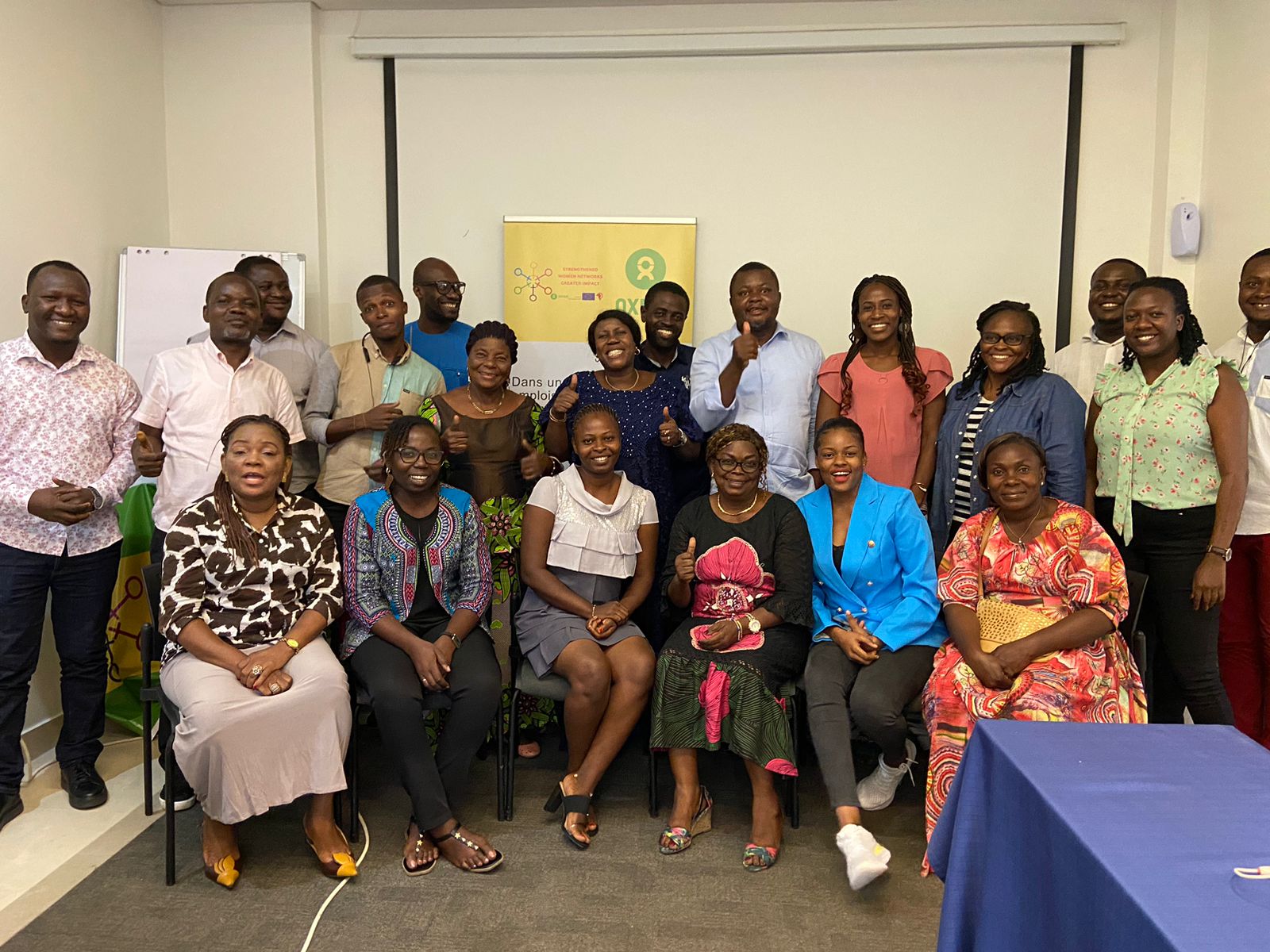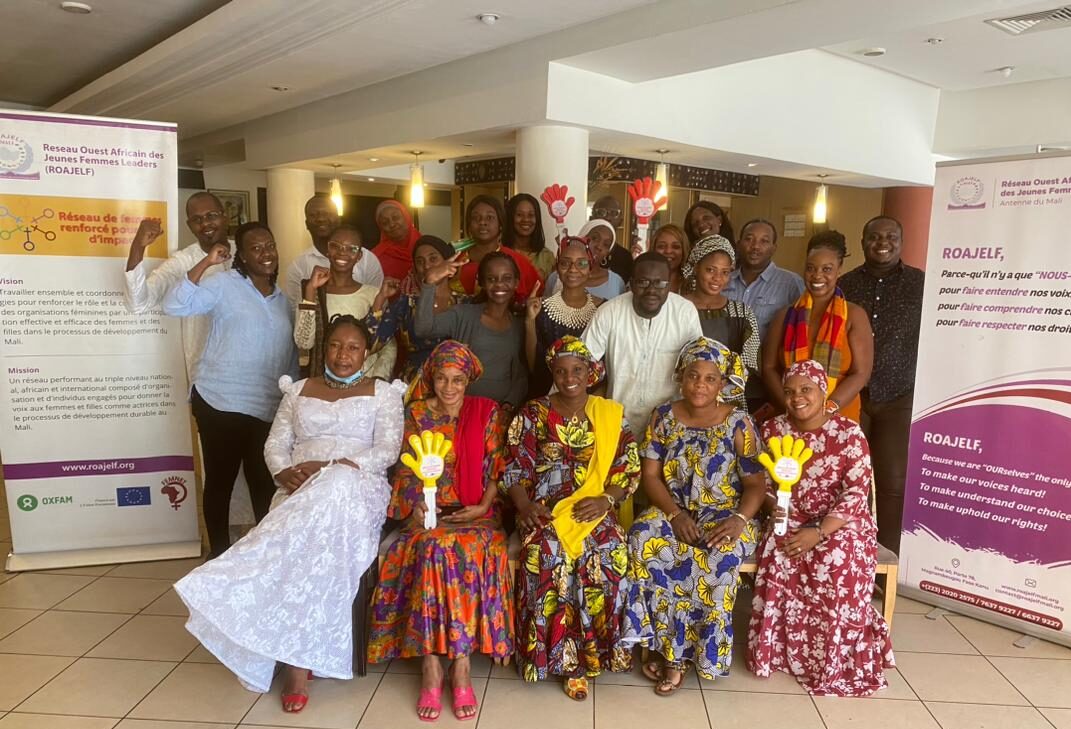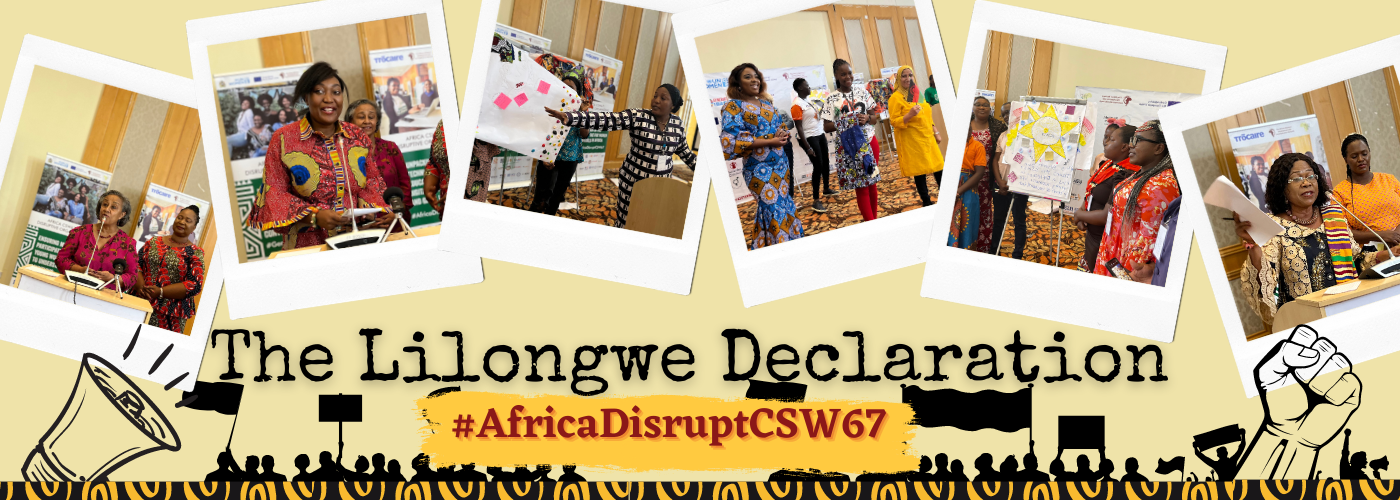
Feminists from DRC Take a Deep Dive in the Digital Space
The rising influence of technology, and its important role in the Democratic Republic of Congo (DRC) cannot be overstated. For many Congolese feminists, women and girls, the emergence of social media has provided powerful platforms for sharing pivotal experiences, learning and openly challenging unhealthy gender norms.
As this ensues the access to online platforms seems to be steadily improving. It is envisaged that feminists, women and girls in Congo will hold bold conversations in the digital spaces. This notwithstanding, accessing the space requires, tact, caution and strategy.
For this reason, the African Women’s Development and Communications Network (FEMNET) in close collaboration with Oxfam in the Horn, East and Central Africa region and with funding from the European Union (EU) Commission, in March 2023, hosted a one-of-a-kind Information and Communication Technologies (ICTs) training in Kinshasa, DRC.
The training unpacked how participants can use emerging ICTs to tell and document their stories and contribute to the body of knowledge on women’s rights and gender equality including the advancement and implementation of the Maputo Protocol. The training also enabled participants to create campaign messages and opened up discussions on various channels for their digital campaigns.
Speaking during the training, Mirjanan Florine Kazala the Coordinator at the Congo Compétence avec les Jeunes, said “ICT remains a formidable tool for communication, change and empowerment of women and girls,”
Kazala underscored that, “ICT has literally opened up opportunities for young women to strengthen the development in communities,”
With the same tone, Akumu Pamba, the Feminist Monitoring, Evaluation, Accountability and Learning Advisor from Oxfam in the Horn, East, and Central Africa (HECA) region said, “Empowering African women and girls through ICT provides them with economic and social power to reduce and subsequently eradicate poverty,”
Pamba asserted that ICT enables women and girls in DRC to have a fresh approach and unique perspective to meet contemporary challenges and solve current problems. She also stated that ICT skills enable African women to engage with, meaningfully contribute to, and shrink the gendered digital divide within the digital ecosystem and among digital rights,”
Certainly, ICT skills enable feminists, in particular African women and girls to be part of critical online discussions and earn decent living in the virtual space. Being ICT literate also enables women to effectively contribute to Sustainable Development Goal 5 on gender equality and women and empowerment and SDG 10 on reducing inequalities.
Retrospectively, the sixty-seventh session of the Commission on the Status of Women theme, Innovation and technological change, and education in the digital age for achieving gender equality and the empowerment of all women and girls underscored the importance of inclusion in the digital space. The event which took place from 6th to 17th March 2023 and recommended for all women and girls to be part digital space.
Notably, Antonio Guterres, Secretary-General of the United Nations said, “The gender digital divide is becoming the new face of gender inequality. Guterres admonished policymakers to promote women and girls’ equal rights and access to learning opportunities. He also stated that women and girls can make significant contribution in science and technology citing that their inaction was the result of centuries of patriarchy, discrimination and damaging stereotypes.
The ICT training in DRC was therefore timely as it is literally implementing the recommendations echoed in the just concluded CSW 67 in one of the most digitally divided states. A study by the King Baudouin Foundation and in cooperation with the Congolese Ministry of Health established that one in five Congolese have access to the internet. This is barely 19% of the entire population in DRC.
The training therefore contributed to the seemingly genesis of DRC’s technical revolution amidst weakness of broadband and visible cyber literacy.
Laetitia Mazamba Mumbanda from the Action, Changement et Transformation par l’inclusion financière en RDC (ACTIF) in Congo, said that African women and girls cannot do without ICT. She insisted that “The digital space should be made available to women and girls and because it is an avenue that can promote a balanced society,”
Additionally, Carole Gatoto, FEMNET’s coordinator of the Strengthening Networks for greater Impact project said, “ICT is an innovative and creative way to influence actions for the advancement of Women and Girls in Africa and globally.”
Fair and equal access to the digital space will enable women and girls to be on the right side of the digital divide.
The ICT conversation that ensued in DRC can be retrieved via #FeministDigitalFutures. This article was written and compiled by Imali Ngusale ; i.ngusale@femnet.or.ke and peer reviewed by Carole Gatoto; c.gatoto@femnet.or.ke, Bill Marwa; bill.marwa@oxfam.org, and Akumu Pamba; akumu.pamba@oxfam.org . For additional information about “Strengthening Networks for Greater Impact and its implementation in Africa contact Josephine Ireri via j.wangari@femnet.or.ke and Maureen Olyaro via m.olyaro@femnet.or.ke
Related Tags
Related Posts
Malian Feminists at the Frontline of Africa’s Digital Revolution
It’s a new dawn in Bamako, Mali as Oxfam Africa and FEMNET continue to implement recommendations from 67th
Learn MoreThe Lilongwe Declaration: Africa CSW67 Disrupt
We, the delegates of the Africa CSW67 meeting physically and virtually comprising of more than 200 distinguished delegates
Learn More







